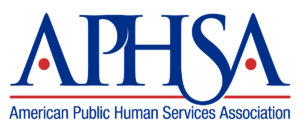Congress Must Act to Help States Realign Medicaid and SNAP Renewals
During the COVID-19 public health emergency, SNAP and Medicaid renewals have become misaligned, leading to additional paperwork for families. In this joint blog, the American Public Human Services Association (APHSA) and NAMD call on Congress to give states tools to address this challenge.
Author
- Chloe Green, APHSA & Hannah Maniates, NAMD
Focus Areas
Program Stream



In March 2020, Congress acted swiftly to pass bipartisan legislation to respond to the COVID-19 pandemic. This legislation – the Families First Coronavirus Response Act (FFCRA) – included changes to Medicaid and the Supplemental Nutrition Assistance Program (SNAP) to ensure that people would continue to receive timely and safe access to benefits during this time of crisis. Due to a “continuous enrollment” requirement in the FFCRA, Medicaid programs have not disenrolled members during the federal COVID-19 public health emergency (PHE) declaration. While this policy was critical to ensuring people had reliable access to health care during the PHE, it meant that households maintained benefits even if they did not meet the usual eligibility criteria for the program. The FFCRA also granted SNAP programs additional flexibilities to adjust issuance methods and application and reporting requirements; these flexibilities were crucial to increasing equitable access to SNAP benefits as demand for nutrition assistance reached unprecedented levels early in the pandemic.
When the federal public health emergency declaration ends, state Medicaid programs will be required to redetermine eligibility for all of their members, at the same time as the SNAP administrative flexibilities expire. With the vast majority of states jointly processing SNAP and Medicaid eligibility, the expiration of these flexibilities will create a massive operational undertaking for state agencies—and could lead to delays and poorer customer service for members.
Realigning Medicaid and SNAP Renewals will Reduce Burden for Families
Because eligibility for both Medicaid and SNAP is primarily based on household income, many people participate in both programs: as of 2017, 89% of children receiving SNAP benefits were also enrolled in Medicaid or CHIP. Most states use integrated models to simultaneously process Medicaid and SNAP eligibility, which reduces the amount of paperwork that families must complete to apply for or renew their benefits, while also reducing workload for state agencies.
During the COVID-19 public health emergency, state Medicaid and SNAP programs have been operating under different rules for their redeterminations and recertifications of eligibility. However, in creating these much-needed flexibilities for members and administrative staff, SNAP and Medicaid recertification dates have become misaligned for many households—potentially doubling the amount of paperwork each year that families will have to complete moving forward.
At the end of the federal public health emergency, states will have up to 14 months to redetermine eligibility for their entire Medicaid caseload, representing a crucial opportunity to re-align these dates. However, the FFCRA’s SNAP periodic reporting and recertification date flexibilities are set to expire at the of the PHE, meaning that states will lose a key tool for realigning certification dates.
State Agencies Face Urgent Workforce Challenges
State Medicaid and SNAP agencies are facing another major challenge: bringing on enough employees to handle the massive amount of work associated with Medicaid redeterminations. Over the past two years, state Medicaid agencies have been preparing for the end of the public health emergency by cross-training staff from other agencies to help with redeterminations, leveraging vendors and third-party contractors to support case processing, and re-hiring retired eligibility workers.
SNAP agencies, however, face unique restrictions on the types of workers they can use. Unlike in Medicaid, SNAP agencies are federally required to use “merit system employees” for certification interviews and eligibility determinations, meaning that they cannot use contract workers or consultants for most functions. In states where SNAP staff also conduct Medicaid redeterminations, this means that agencies will be facing a tidal wave of work with limited options for deploying short-term contractors to help. This could lead to issues with timeliness of application processing, increased churn, and poorer customer service.
Congress Must Act to Support States with Integrated Eligibility Systems
Realigning Medicaid and SNAP renewals is an important policy goal. The Centers for Medicare and Medicaid Services have authorized additional flexibilities for Medicaid programs, including the use of 1902(e)(14)(A) waivers, to streamline the redetermination process following the end of the public health emergency. But Congress must act to give SNAP programs similar flexibilities.
Specifically, Congress should do three things to help states with integrated SNAP and Medicaid eligibility systems:
- Extend flexibilities that allow the USDA to adjust SNAP issuance methods and application/reporting requirements. This will help states with integrated eligibility systems re-align Medicaid and SNAP renewal dates, reducing administrative burden on families.
- Expand non-merit staffing flexibilities for the SNAP program. This would allow states to bring on additional short-term staff to help process Medicaid redeterminations in integrated eligibility states following the end of the federal public health emergency, ensuring timeliness and good customer service.
- Provide states with adequate planning time and resources. Congress has considered new legislation that would change how and when states conduct Medicaid redeterminations. States would need time to prepare for this type of change—including time to implement IT systems changes, train staff, and communicate with members—so at least 120 days of advance notice is essential. Congress should also provide states with a phase down of the enhanced federal funding that is tied to the public health emergency to ensure states have the resources they need to conduct redeterminations.
The COVID-19 pandemic has had significant impacts on Medicaid and SNAP programs, which are facing increased demand, a reduced workforce, and changing federal regulations. In order to mitigate the negative impact of the end of the public health emergency on families, Congress must give states the tools they need to transition off of COVID-related flexibilities. These tools will ensure that states can continue delivering efficient, effective, and high-quality services to the millions of people served by Medicaid and SNAP.
Related resources
Medicaid Meets Public Health: A Blueprint for Collaboration
National Committee for Sustainable Medicaid and Public Health Partnerships
Stay Informed
Drop us your email and we’ll keep you up-to-date on Medicaid issues.